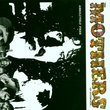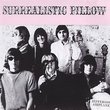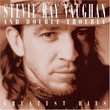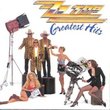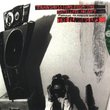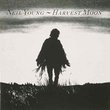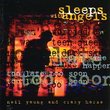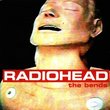| All Artists: Frank Zappa & The Mothers Of Invention Title: Freak Out Members Wishing: 12 Total Copies: 0 Label: Zappa Records Release Date: 5/2/1995 Album Type: Original recording reissued, Original recording remastered Genres: Alternative Rock, Jazz, Pop, R&B, Rock Styles: Hardcore & Punk, Avant Garde & Free Jazz, Oldies, Progressive, Progressive Rock Number of Discs: 1 SwapaCD Credits: 1 UPC: 014431050121 |
Search - Frank Zappa & The Mothers Of Invention :: Freak Out
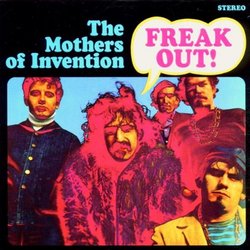 | Frank Zappa & The Mothers Of Invention Freak Out Genres: Alternative Rock, Jazz, Pop, R&B, Rock
IMPORTED FROM JAPAN BY RYKODISC This collector?s dream set completes our 20-disc series of limited edition Frank Zappa Japanese imports. Packaged in deluxe mini-album jacket sleeves, these 10 classic albums are packaged t... more » |
Larger Image |
CD DetailsSynopsis
Album Description IMPORTED FROM JAPAN BY RYKODISC This collector?s dream set completes our 20-disc series of limited edition Frank Zappa Japanese imports. Packaged in deluxe mini-album jacket sleeves, these 10 classic albums are packaged to re-create the original vinyl packaging in miniaturized form! Similar CDs
Similarly Requested CDs
|
CD ReviewsClassic Bill Your 'Free Form FM Handi Cyber | Mahwah, NJ USA | 12/12/2009 (5 out of 5 stars) "Zappa has better music than Freak Out! Even by Absolutely Free he was growing by leaps, and by Uncle Meat he had redefined the rock album But Freak Out is monumentally important because it took elements that were only starting to seep into the air and talked about them in a way no rock album ever had. Bob Dylan may have made protest music and talked about the personal with poetry that remains unmatched today. But Freak Out is like picking up a newspaper from any given day in 1966. This was no earnast Phil Ochs or Joan Baez folk; cafe music. This was a rock and roll album. "Hungry Freaks, Daddy" is about the L.A. Hippie scene that few people in middle America even knew of. "Trouble Everyday" is about race riots, when long hot summers were met with fear and dread by police, the national gaurd, and the white middle class. There really seemed to be an insurrection underway. You would see burning neighborhoods on the cover of Life Magaizine. This is not hippy dippy poetry. Zappa takes what was in the news and talks about it directly. If you're young, try to understand how long ago this was; how different American culutre was. Rock and roll was the teen beat. Dance music for the kids between episodes of Gunsmoke and My Three Sons. Zappa was making it into jounalism. He talks about the times as if you were across the table. All the frights in the cities were put on a rock album. In 1966, this was like putting nudes in Saturday morning cartoons. Musically, Freak Out contains all the music Zappa loved, particularly doo-wop. But "Monster Magnent" and "Who Are The Brain Police" are some of the first songs in rock to deal with the avant-gaurde. That, hungry freaks, is a classic album." Classic debut album and great introduction to a wonderful mu Art Johnson | Los Angeles, California | 04/20/2010 (5 out of 5 stars) "There are certain special albums that, when listened to carefully and wholly, can introduce you to new worlds of sound, concepts, and ideas. There are a good number of these records that I've encountered, and this is one of them. (Some others? Bitches Brew, Daydream Nation, Trout Mask Replica, and Hex: Or Printing in the Infernal Method.) A lot of these records will also strike you with a kind of dumbfounded "what IS this?" confusion. Again, this record is in this group. When I first heard this record at 17, listening to it took me into a kind of uncomfortable but strangely pleasant universe. Ugly but painfully catchy songs morphing through a mix of rock, musique concrete, doo-wop, r&b and several other varied styles for the majority of the record, before brutally mutating into a confusing, scary and disorienting collage of bizarre effects, sounds, musical ideas, and voices. Needless to say, my musical soul was forever scarred in the most pleasant way. This may be Mr. Zappa's finest collection of succinct pop songs; they burn themselves into your brain and the musical performances by the Mothers render them with enough verve and detail to come back again and again. Speaking of Zappa's songwriting, I noticed something a little odd while listening to this album for the hundredth time; some of these songs can be pretty emotionally affecting! (At least for Zappa.) No one would ever accuse Zappa of being a sappy songwriter, and he would probably hate to hear it, but it's true; songs like "Go Cry on Somebody Else's Shoulder", "How Could I Be Such a Fool?", and "You Didn't Try to Call Me" are very pretty, sensitively composed pop songs. I read somewhere that Zappa wrote some of these tunes after his divorce with his first wife, so I know that some element of these songs aren't just satire; besides, his adeptness at working within the genres show a genuine affection for them. It's just that the songs are interpreted by a flat-voiced, goofy group of subpar musicians (not a negative criticism). Musically, you can see some of the Zappa hallmarks beginning to blossom: his eventual epic improvisatory excursions on electric guitar are foreshadowed by some stinging, effective but concise licks pounded out in songs like "Hungry Freaks, Daddy"; his clever use of harmony and deployment of instruments and playing to voice his compositions; and his off-beat, surreal sense of art, aesthetic and humor. It's too bad that Zappa didn't do more records with this group, as their amateurishness and sloppy charisma balanced out some of his musical pomposity. By 1970, the group that created this world of its own would be disintegrated."
|

 Track Listings (15) - Disc #1
Track Listings (15) - Disc #1
